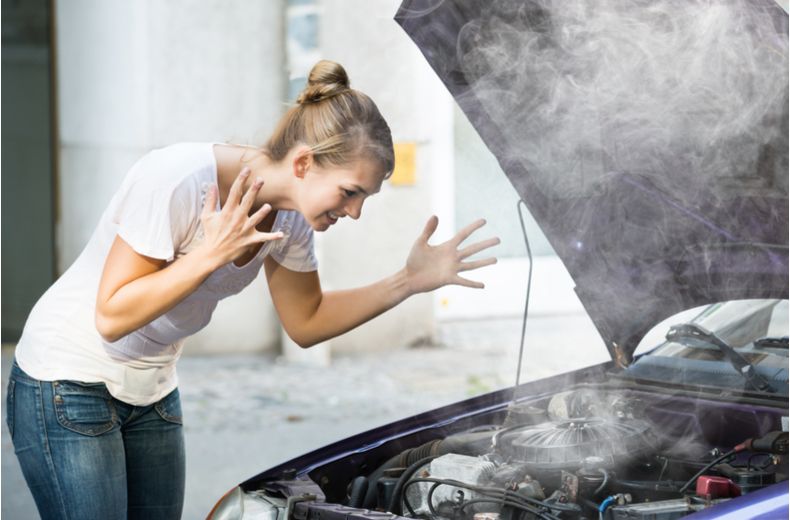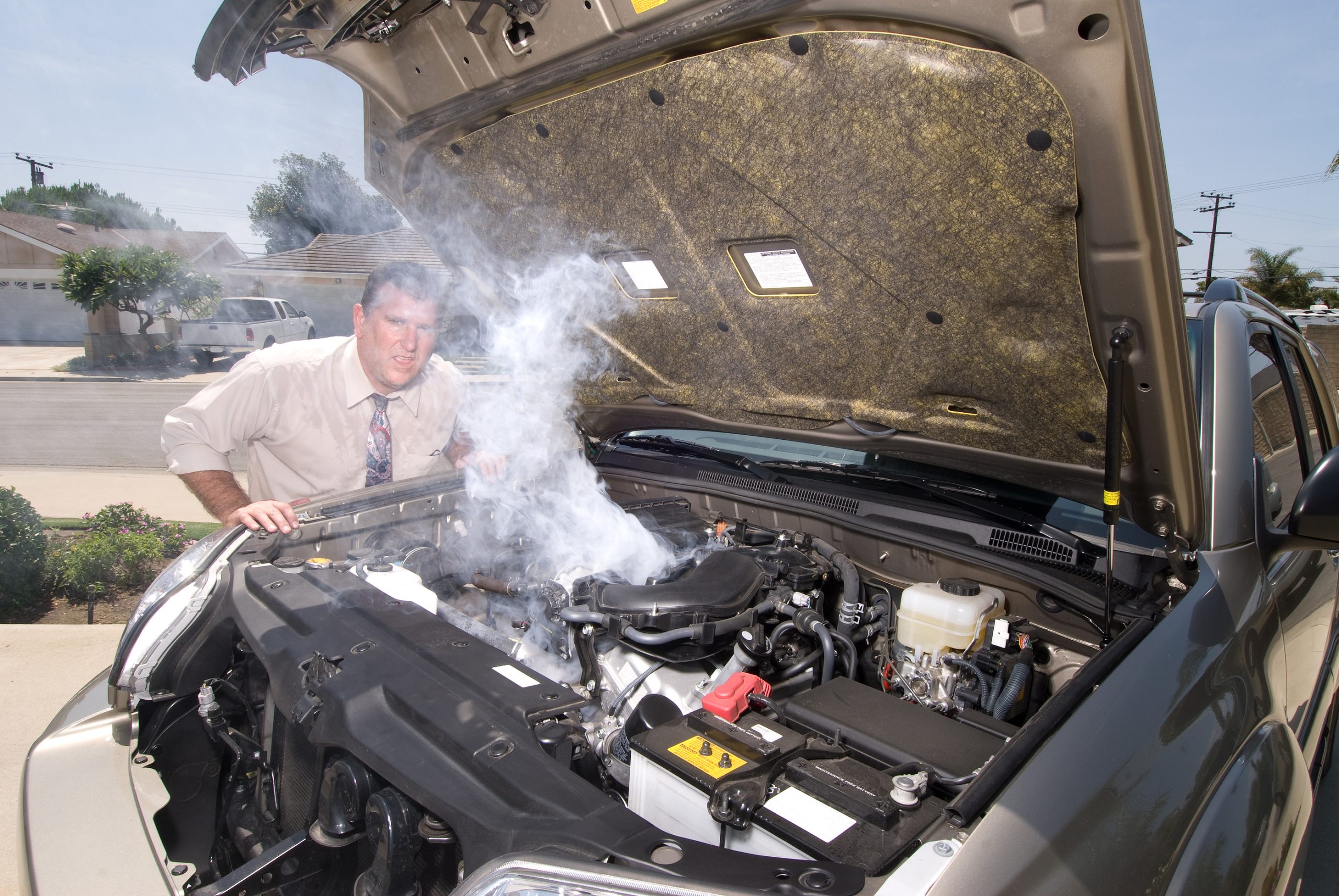A car can sustain damage from overheating in as little as 30 minutes of continuous overheating. Car engine overheating can lead to severe damage if not addressed promptly.
When a car overheats, it means that the engine is unable to cool down adequately, causing a rise in temperature. This can be due to various factors, such as a malfunctioning cooling system, low coolant levels, or a faulty thermostat.
If a car continues to overheat over an extended period, it can cause significant damage to engine components like the head gasket, radiator, and pistons. Additionally, prolonged overheating can warp or crack the engine block, leading to costly repairs or even engine failure. It is crucial to monitor your car’s temperature gauge and address any signs of overheating promptly to prevent potential damage.
Understanding The Impact Of Overheating
Understanding the impact of overheating is crucial in preventing car damage. It’s important to know that extended periods of overheating can lead to severe engine problems if not addressed promptly.
Proper engine temperature is of utmost importance for the smooth functioning of a car. Overheating can have detrimental effects on various components, posing a significant risk to the vehicle’s health. Excessive heat can cause damage to the engine, leading to expensive repairs.
The effects of excessive heat on car components:
| Component | Impact of Overheating |
|---|---|
| Engine | Warped cylinder heads, damaged head gasket, or cracked engine block |
| Transmission | Slipping gears, premature wear, or total failure |
| Radiator | Corrosion, leaks, or bursting |
| Cooling System | Damaged water pump, thermostat, or radiator fan |
| Hoses and Belts | Cracking, swelling, or becoming brittle |
Ensuring that your car maintains the proper temperature is crucial for its longevity. Regularly checking your coolant levels, keeping an eye on the temperature gauge, and servicing your cooling system can help prevent overheating and extend the lifespan of your car’s components.
Signs Of An Overheating Car
When your car overheats, it can cause significant damage to the engine and other components. To prevent further issues, it’s important to recognize the warning signs indicating an overheating car. One of the primary signs is a rising temperature gauge on the dashboard. If you notice the gauge moving towards the red zone, it’s a clear indication that the engine is overheating. Another common symptom is steam or smoke coming from the engine bay, which is a sign that the coolant is boiling and possibly leaking. Strange smells, such as a sweet or burning odor, can also suggest an overheating engine. In addition, reduced performance, such as sluggish acceleration or a sudden loss of power, might occur. Keep an eye out for these warning signs and take immediate action to prevent further damage to your car.
Factors Affecting Car Overheating Duration
Engine type and capacity as well as outside temperature and weather conditions significantly affect the duration a car can overheat before sustaining damage. The engine’s type and capacity determine its cooling system’s capacity to dissipate heat. Engines with larger capacities tend to generate more heat, requiring a more robust cooling system to prevent overheating. Similarly, engines with specific designs, such as turbocharged engines, may produce more heat due to increased compression and forced induction.
Outside temperature and weather conditions also play a crucial role in how long a car can overheat. Higher temperatures and extreme weather conditions like hot summers or humid climates increase the likelihood of a car overheating quickly, as the outside temperature contributes to the overall heat load on the engine. In these conditions, it is essential to monitor the engine’s temperature and take appropriate measures, such as using air conditioning or taking breaks to cool down the engine.
Consequences Of Prolonged Overheating
Inadequate cooling can lead to serious damage and potential failure of a car’s engine. When a car overheats for a prolonged period, it puts tremendous strain on the engine components. The excessive heat can cause the engine to warp, resulting in a loss of engine power and efficiency. Additionally, it can damage the cylinder walls, pistons, and piston rings, leading to decreased compression and potential engine failure. Prolonged overheating can also have a negative impact on vital car systems, such as the cooling system, transmission, and electrical components. The cooling system may develop leaks, leading to coolant loss and further overheating. The transmission may experience fluid breakdown and increased wear due to high temperatures. Furthermore, heat can cause damage to sensitive electrical components, leading to malfunctioning sensors and potential breakdowns.
Preventive Measures For Car Overheating
Regular maintenance and inspections are crucial for preventing car overheating. By following these steps, you can avoid potential damage caused by overheating:
- Check the coolant level regularly and top it up as needed. Proper coolant levels help regulate engine temperature.
- Inspect the radiator for any leaks or blockages that may hamper proper cooling. Ensure the radiator fan is working correctly.
- Clean or replace the air filter regularly to prevent debris from clogging the cooling system.
- Monitor the engine’s temperature gauge and pay attention to any sudden fluctuations or warning lights. If you notice any issues, have the cooling system checked immediately.
- Avoid driving in extreme heat conditions whenever possible. If you must, turn on the car’s heater to help dissipate heat from the engine.
If your car does overheat, here are a few tips to cool it down:
- Turn off the air conditioning and roll down the windows to reduce strain on the engine.
- Pull over to a safe location as soon as possible and turn off the engine.
- Open the hood to let the heat escape and wait for the engine to cool down before attempting any further action.
- Once the car has cooled down, check the coolant level and add more if necessary. However, if you notice any leaks or severe damage, it’s best to call for professional assistance.
By following these preventive measures and knowing what to do in case of overheating, you can keep your car running smoothly and avoid costly damages.
Emergency Actions When Car Overheats
When a car overheats, it can potentially cause severe damage to the engine if not addressed promptly. In such emergency situations, it is crucial for drivers to take immediate action to ensure their safety and prevent further harm to the vehicle.
To begin with, drivers should prioritize their safety by pulling over to a safe location away from traffic. Turning on the hazard lights can help alert other drivers to the situation. It is advisable to let the engine cool down before attempting any troubleshooting.
Once it is safe to do so, drivers can take several steps to prevent further damage. First, checking the coolant level is essential. If it is low, adding coolant can help regulate the temperature and prevent overheating. Additionally, inspecting the radiator for any leaks or blockages can provide valuable insights into the root cause of the issue.
Finally, it is crucial for drivers to consult a professional mechanic if the car continues to overheat or if there are any concerns about the engine’s condition. A qualified mechanic will be able to accurately diagnose the problem and carry out the necessary repairs or maintenance.
Seeking Professional Help
When your car is overheating, it is crucial to seek professional help immediately. Ignoring the issue or trying to fix it yourself can lead to further damage to your vehicle. Consulting a mechanic is the safest and most reliable solution.
There are certain signs that indicate when it is necessary to consult a mechanic. If your temperature gauge is in the red zone or you notice steam or smoke coming from the engine, it is essential to seek immediate attention. Other indications include a strange smell, a knocking or ticking noise, or a sudden loss of power. These issues should not be overlooked, as they can result in serious damage to the engine.
Getting professional help as soon as possible is of utmost importance when dealing with an overheating car. A qualified mechanic can diagnose the problem accurately and provide the appropriate solution to prevent any further damage. Remember, it is always better to be safe than sorry when it comes to the well-being of your vehicle.

Credit: www.rac.co.uk
Conclusion
It is crucial to address car overheating promptly to avoid potential damage. The longer a car overheats, the higher the risk of significant harm to the engine and other components. Regular maintenance, proper coolant levels, and immediate action when signs of overheating occur are essential for vehicle longevity.
Timely attention can save you from costly repairs and ensure your car’s reliable performance on the road. So, stay vigilant and proactive in addressing any overheating issues to protect your car’s health.

